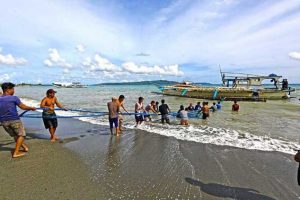THE sustainable management of Philippine fisheries will depend largely on protecting the interests of small fishing communities and the health of the waters they depend on for their livelihoods, marine advocacy group Oceana said.
“The state of fisheries has been in the red for decades. It was caused by years of neglect of our marine environment that (made) our small artisanal fisherfolk and their households in coastal communities among the poorest in our society,” Oceana said in a statement.
“While the Philippines is endowed with rich marine and aquatic resources, making us ‘the center of the center of marine biodiversity in the world,’ in a study among scientists, we have not been very good stewards (of) our fish and marine resources and marine habitats,” Oceana Vice-President Gloria E. Ramos was quoted as saying.
The group said there is a need for science-based fisheries management and the integration of the National Sardine Management Plan in fisheries management areas.
“The passage of the Fisheries Code protects the 15 kilometers of municipal waters from the shoreline and gives municipal fisherfolk preferential rights to its use,” Oceana said.
“This protected zone hosts the coral reefs and seabed grass, the spawning grounds of our young sardines and other fish, thus, should be protected from the aggressive fishing pressure of the commercial fishing sector. However, commercial fishing continues to encroach here, hampering the growth and reproduction of our fish stocks,” it added.
The group also called for transparency in ocean governance via an online platform for reporting illegal fishing, and enforcing the rules on vessel monitoring.
It also recommended focusing on habitat protection, mangrove reforestation, and mitigating plastic pollution. — Luisa Maria Jacinta C. Jocson
